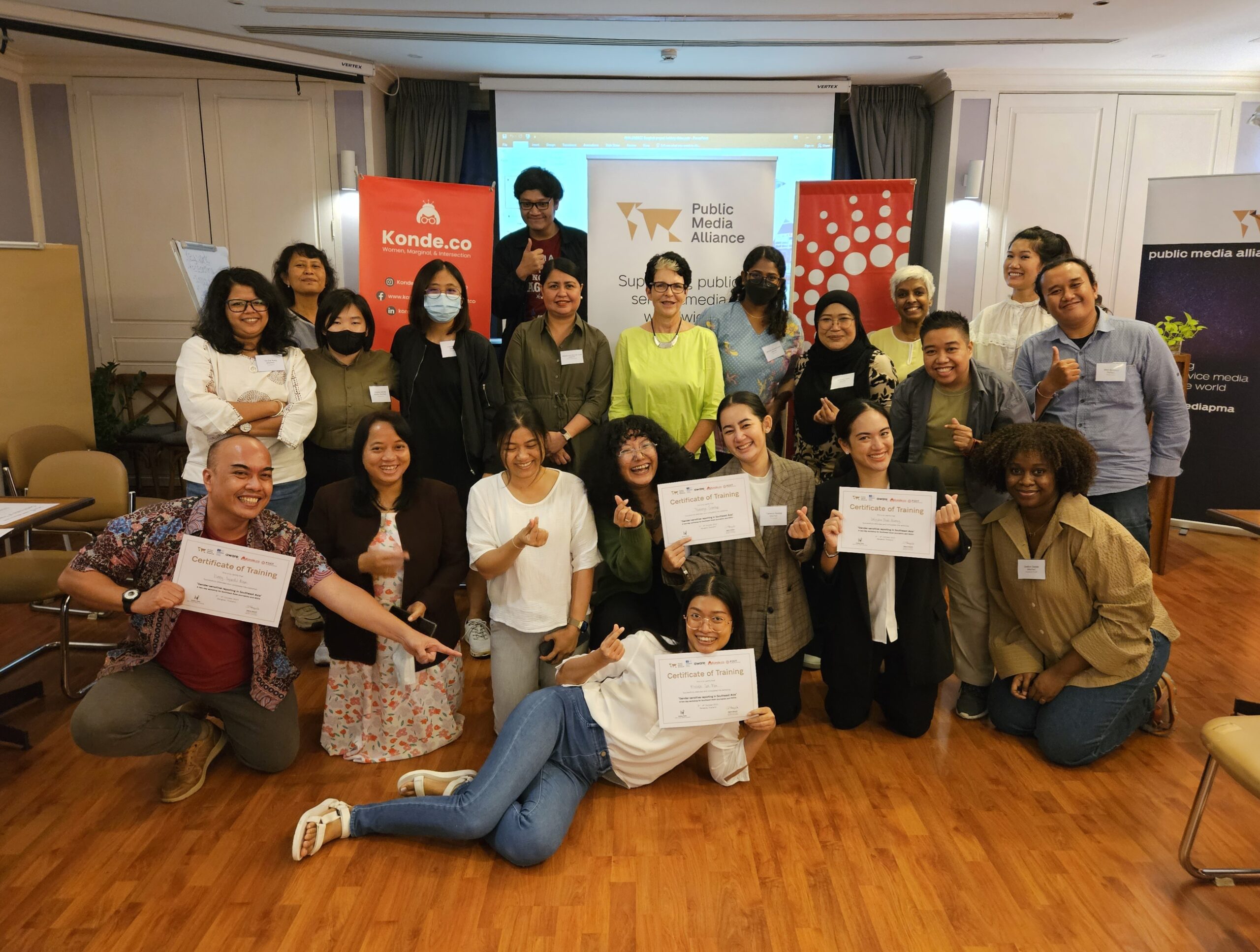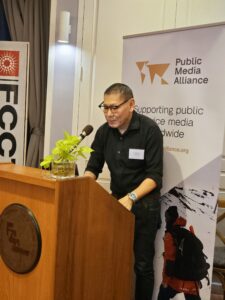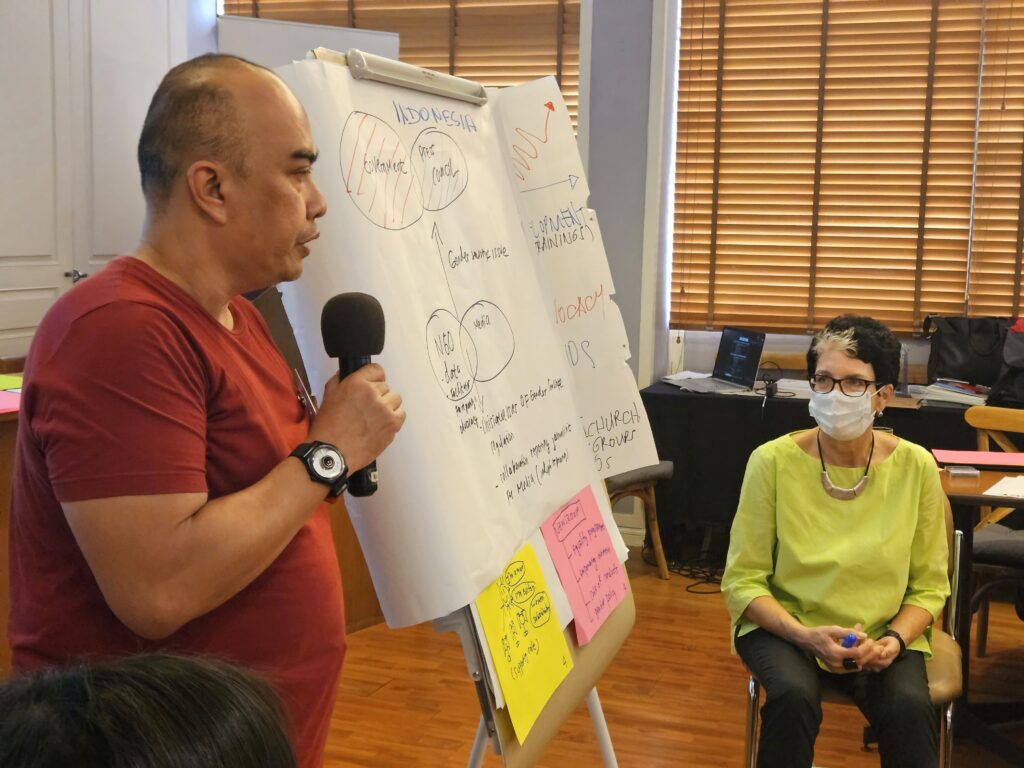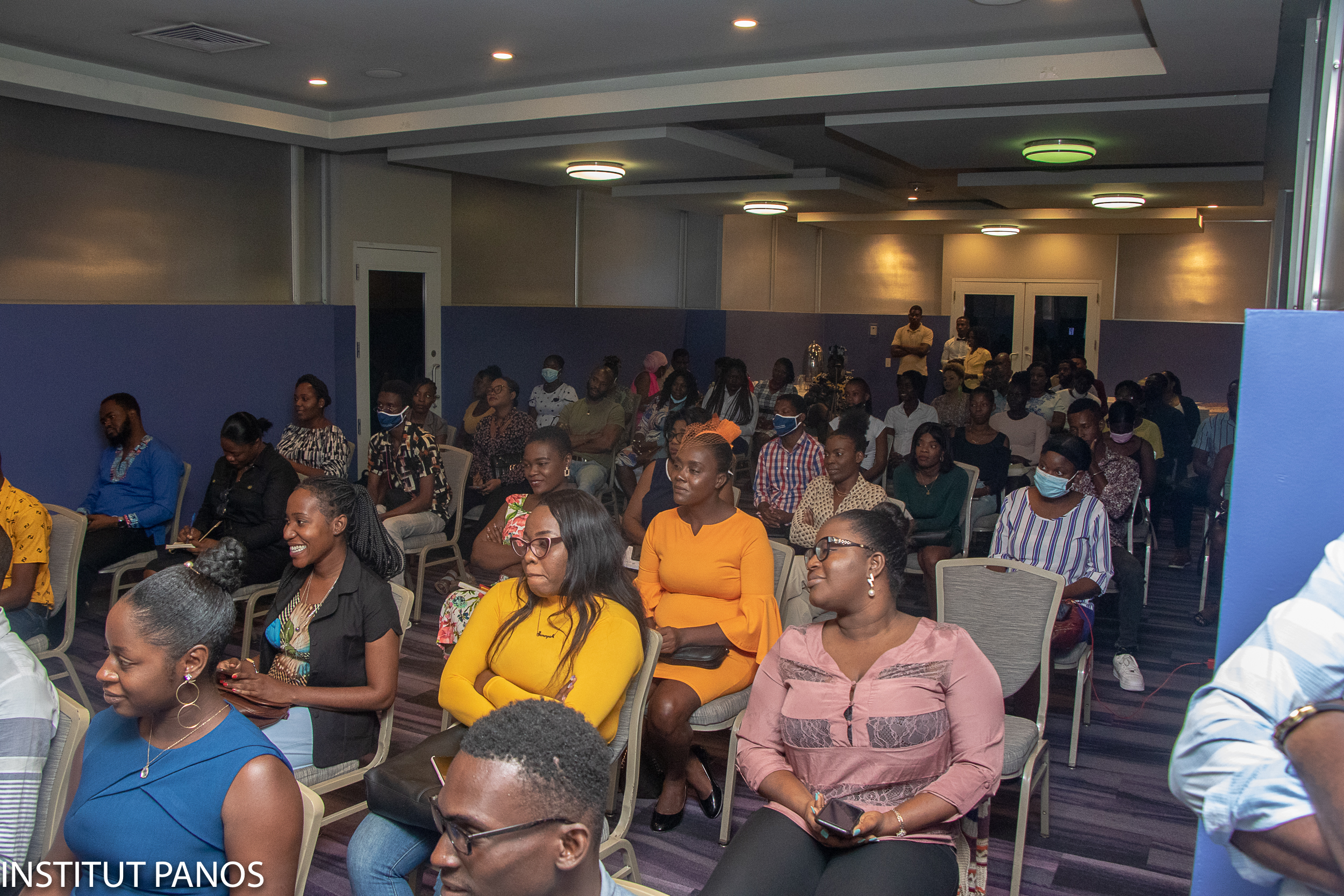The highlights of our gender-sensitive reporting workshop for SEA journalists and NGOs
20th October 2023
On 3-4 October, journalists and representatives of gender-focused NGOs gathered in Bangkok for our gender-sensitive reporting workshop. In this report, we reflect on the two days of impactful sessions.

Combatting gender discrimination and gender-based censorship within the media was the focus of a two-day workshop organised by the Public Media Alliance (PMA) and other partners.
The event brought together media workers and NGOs from Indonesia, Malaysia, Singapore, Thailand, and the Philippines. The event was held at the Foreign Correspondents’ Club of Thailand’s Clubhouse in central Bangkok. The 20 participants represented a diverse range of experience and roles, including journalists, editors, media officers, communications officers, and media trainers.
Reflecting on the workshop, one of the facilitators, Dagmar Skopalik, applauded the attendees’ enthusiasm and level of participation. “I didn’t expect we’d have such a lively group, but this was also due to some very, very good presenters,” she said.
Interview with Project Facilitator, Dagmar Skopalik
The workshop formed part of a wider project being run by PMA in collaboration with Konde.co and AWARE, with support from the UNESCO International Programme for the Development of Communication and the UNESCO Bangkok Office. The project aims to enable CSOs/NGOs and the media to work collaboratively together to produce more transparent, relevant, responsive, and accessible content on gender issues, especially addressing violence against women and girls (VAWG).
Here are the highlights from the two-day sessions.
Timely reminders
The workshop began with an opening ceremony on 3 October, and guest speakers took the opportunity to offer critical reminders to those in attendance. In his remarks, the Advisor and Chief of Unit on Communication and Information at the UNESCO Multisectoral Regional Office in Bangkok, Joe Hironaka, encouraged participants to their existing understanding of gender-based violence, emphasising that there is still room to grow, even when you are an expert.

Similarly, the President of the Foreign Correspondents’ Club of Thailand, Lisa Martin, shared personal stories of her time in the field and those of women she has encountered in her work, and reminded participants of the essential work journalists must still do to help fight gender-based violence.
Meanwhile, the keynote speech was delivered by the Deputy Regional Director on Gender Based Violence (GBV) at the Asia and the Pacific Regional Office of the United Nations Population Fund (UNFPA), Dr Aleksandar Bodiroza, who offered a reminder of the importance of telling stories ethically. “It’s a human story. It’s a human life,” he said, while stressing the need for stakeholders to work collaboratively against violence against women.
The opening ceremony reiterated the importance of such workshops. Speaking on the sidelines of the sessions, Wathshlah Naidu – one of the workshop’s facilitator and Executive Director of the Center of Independent Journalism in Malaysia – explained why the project was critical for Southeast Asia, and shared her thoughts on the sessions.
“Pulling people together in such spaces and in such an interactive way, gives them an understanding that you’re not alone but also be able to share the experiences and then realise that there is possibility of trying to think about resolution and possible ways of mitigating some of these challenges,” she said.
Interview with Project Facilitator, Wathshlah Naidu
“Food for thought”
“In the end, [the workshop] came out very smoothly because the components we had in the workshop offered food for thought for everyone,” said Ms. Skopalik.
The two days of sessions were filled with diverse input that both educated and facilitated discussions. Among the sessions were presentations that deepened participants’ understanding of VAWG and gender through the lens of data, provided an overview on key terms, and offered insight on the challenges faced by women journalists, women and girls, LGBTQIA+ people, and refugee women. Participants also received more practical input, including sessions on reporting techniques with a gendered perspective, and practical tips on using the language when reporting on gender.
But the sessions also allowed participants to share their experiences, both professional and personal. Notably, there were interactive sessions – including role-playing and content review – that facilitated collaborative work among the participants.
Planning for action
The workshop culminated in the development of country-specific regional action plans. In the afternoon of 4 October, participants were separated by country to identify current and potential collaborative initiatives at the organisational and national level; support or resources needed; and both potential allies and detractors.
“The need for an action plan at the end is also to get people to start thinking what they can do themselves to change. So even if 10 different activities do not happen, but at some level there is some level of awareness and thinking around these issues in different ways, in different times, or different spaces, it could impact their own actions,” Ms. Naidu said.

The action planning session highlighted both the similarities and differences across the countries. Recurring issues included the need for regional data collection and reporting on gender-based violence; further capacity-building for the media and NGOs; and an intersectional approach to gender reporting.
What’s next?
On 6 December, PMA will host an online launch of the five country-specific action plans. We will also release preliminary findings from our situation report on the target countries. The final report will provide a snapshot of the state of affairs in each country in regard to the representation of women in the media, violence against women and girls, and violence against women journalists, and offer insights from regional media professionals and NGOs.
The launch event will coincide with the International Day for the Elimination of Violence Against Women (25 November) and its 16 Days of Activism.
We will provide more details on the launch in the coming weeks, but you can indicate your interest in attending the event by emailing info@publicmediaalliance.org.
Project partners

